Is Kenya Safe to Visit? 10 Health and Safety Tips for Travelers
How bad is crime in Kenya? Should the fear of terrorism stop you from visiting? Frequent visitor Alicia shares her tips on how to stay safe and healthy and avoid trouble.
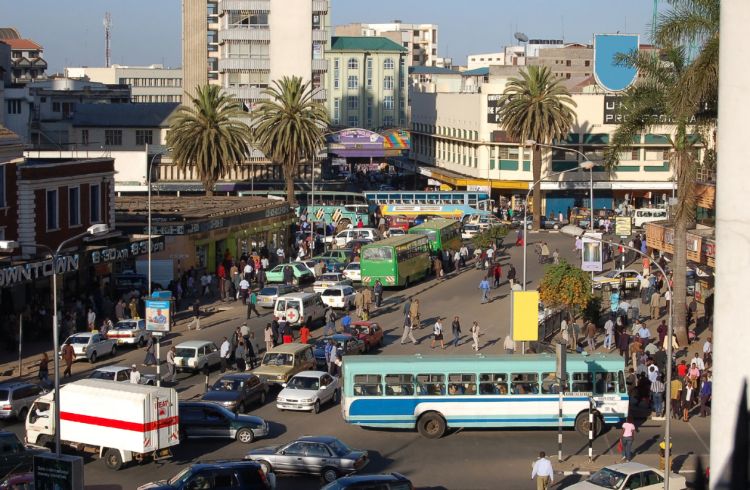 Photo © iStock/millerpd
Photo © iStock/millerpd
While Kenya is a safe destination compared to some surrounding African countries, there are issues with crime in major cities such as Nairobi, and many government travel advisories warn travelers of the threat of terrorism. The overall 2024 crime index for Kenya is 56.8, the 34th highest in the world. However, most crime is concentrated in the cities or along the Kenya-Somalia border. Check your Government's travel advice for the latest information.
Travelers will always attract unwanted attention from beggars and potential pickpockets. From street scammers to more serious threats, a little common sense goes a long way in Keyna, and staying up to date on the local situation is essential no matter where you go. These are the things you need to know to stay safe in Kenya.
- Crime in Nairobi
- Food hygiene in Kenya
- Is tap water safe to drink in Kenya?
- Malaria and travel health tips
- Politics, protests and civil unrest in Kenya
- Road safety in Kenya
- Hiking and wild camping in Kenya
- Terrorism in Kenya
- Is Kenya safe for LGBTQ+ travelers
- Is Kenya safe for female solo travelers?
1. Crime in Nairobi
Nairobi has a bit of a reputation, so much so that it was nicknamed “Nairobby.” That being said, crime levels and safety have very much improved over recent years. Violent crime is rare but petty crime can still be an issue. In general, petty crime involves pickpocketing and theft, and on rare occasions can be confrontational. As such, it is important to be aware of your surroundings and belongings on public transportation and in crowded places in any urban setting. Pickpocketing isn’t uncommon in crowded clubs and festivals. Be careful with your personal belongings, or better yet, leave everything that you don’t need at home if you know you’re going to be attending a crowded event.
For the most part, I walk freely in Nairobi and other Kenyan towns during the day. I feel comfortable and have personally had no issues. At night, it is best to take some form of motorized transportation instead of walking to avoid any potential incidents.
A couple of neighborhoods in Nairobi should generally be avoided if you’re going on your own. These neighborhoods include Kibera, which is the largest slum in East Africa and downtown Nairobi, including the infamous River Road. While, like all areas of Nairobi, crime rates are improving in these spots, it still can be an issue. The neighborhoods are crowded and not typically areas where tourists go, so you may draw attention unwittingly. However, if you are interested in experiencing some of these neighborhoods, I would recommend finding a walking tour. There are some fantastic ones through Airbnb Experiences and local companies that connect you to guides from Kibera and the city center who can help you safely navigate the streets while providing a background to the neighborhood’s history and culture.
Emergency numbers
- Police hotlines: 999, 112, or 911.
- Fire and ambulance services: 999.
2. Food hygiene in Kenya
While it’s not a major cause for concern, be aware of what food you eat and where, like in most countries. Kenya has an incredible amount of fresh local fruits, like pineapple, passion fruits, mango, and avocado. All peeled fruits are safe to eat. Proceed with more caution when it comes to fruits and vegetables that aren’t peeled or cooked. I don’t avoid them all together but I’m more selective with where I eat them. From Nairobi to the coast, there are plenty of fantastic restaurants serving salads and vegetable-abundant dishes from the growing number of local farms. If you’re planning to check out some street food stands, which is my personal favorite way to explore a country’s culinary scene, you’ll want to be cautious about eating meat, as it’s uncertain how long it’s been sitting out.
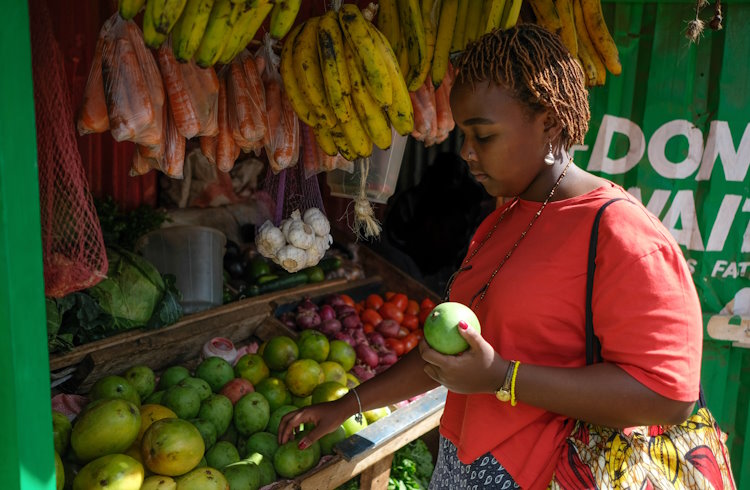
3. Is tap water safe to drink in Kenya?
Don't drink tap water unless it has been boiled or purified. Carry a reusable water bottle and purification tablets or a water filter bottle, such as the Grayl water bottle, and keep it topped up with purified water to avoid buying bottled water. If you’re out of water, most restaurants sell bottled water. Many of them have filtered water as well—just ask!
Planning a trip to Kenya? Find out how travel insurance can cover lost or stolen baggage, sudden illness, or other travel mishaps.
4. Malaria and travel health tips for Kenya
Certain areas of Kenya are at high risk for malaria, while others are not. The coast and Lake Victoria generally have the highest incidences of malaria. Nairobi is typically a low-risk area for malaria. The Kenyan highlands (above 2500m) of Nyanza, the Rift Valley, and the Central, Eastern, and Western Provinces are also lower risk.
Malaria-carrying mosquitos only come out in the evening so wearing light layers during these hours can reduce the risk of infection, along with some applying mosquito repellent. Most beds are equipped with mosquito nets for protection while sleeping. If you do suspect that you are showing signs of malaria (fever, low energy, chills, lack of appetite—similar to typical flu symptoms that occur in two-day cycles), it’s best to get tested. Clinics throughout the country are well-equipped to deal with malaria (typically much more so than in malaria-free countries) and you can easily get a test and medication if needed.
Generally, I found the clinics and health care systems in Kenya quite good and definitely better than those in other East African countries. Particularly in Nairobi, you’ll be able to find a large concentration of hospitals and clinics that can support you should you need to seek medical attention. The pharmacies are well stocked as well for your basic goods.
5. Politics, protests, and civil unrest in Kenya
Political tensions can run high in Kenya. While it is unlikely you’ll encounter political violence, stay connected to local news to be aware of current situations while in the country. Avoid protests and demonstrations should any take place, as they run the risk of turning volatile or violent. It’s best not to travel during a general election as well, to play it safe.
6. Road safety in Kenya
Motorcycles are a common form of public transportation and a quick and easy way to get around Nairobi’s insane traffic. However, many of the roads are under construction or potholed, and motorcycles are competing with trucks, cars, and a lot of crazy road rules (or rather, lack thereof). Having a helmet with you is really important if you plan on catching motos. I was in two motorcycle accidents as a passenger in less than a year in Nairobi and refused to get on one without a helmet!
If you choose to ride, consider travel insurance and be sure to comply with its requirements, such as riding with a helmet and being appropriately licensed to ride in your home country at your destination.
7. Hiking and wild camping in Kenya
With the exception of a few hills on the outskirts of Nairobi, hiking and wild camping are fairly crime-free in Kenya—and a fantastic way to experience this East African country. Your bigger concerns are wildlife and nature. If you’re planning to take on more challenging, high-altitude hikes like Mount Kenya, come prepared with warm clothes to protect against freezing temperatures and rain, as well as adequate food and water, and medicine for altitude sickness as a precaution. On the other extreme, spots like Lake Magadi near the Tanzania border can experience extremely hot temperatures. For hikes and camping in those regions, it is important to bring shade, water, and electrolytes in case of dehydration. When it comes to wild camping in places like Tsavo National Park and near other nature reserves, be aware that wildlife lives there. Read up on safety and guidelines for wildlife encounters before heading out on a solo adventure.
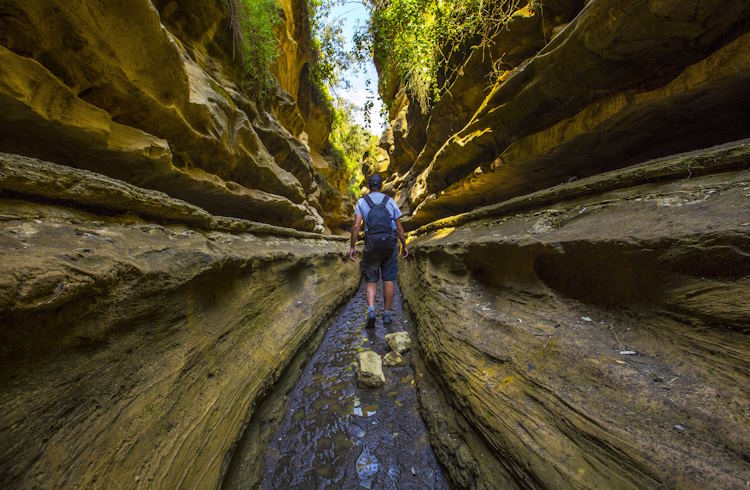
8. Terrorism in Kenya
Although there have been a handful of isolated attacks in Kenya by Al Shaabab from neighboring Somalia, these incidences are rare. Borders with South Sudan, Sudan, and Somalia should be avoided unless going with a local guide, as localized conflict may spill across.
9. Is Kenya safe for LGBTQ+ travelers?
Despite the government laws against LGBTQ+ relationships, Nairobi has a fairly prominent LGBTQ+ community. Areas outside of Nairobi are much more conservative and traditional but coming across LGBTQ+ events and parties is not uncommon.
10. Is Kenya safe for female solo travelers?
For the most part, female travelers to Kenya will have a trouble-free trip. The locals are friendly, respectful, and hospitable and most people speak English.
There have been reports of women experiencing harassment by men. Avoid hanging out at the beach or walking around alone at night. Take a taxi if you plan to head out at night, even if you are with others. And as you would at home or anywhere else, avoid getting too intoxicated.
Nairobi and the central areas of coastal towns like Diani and Watamu are quite western and I dress as I would in Europe or the US. In rural regions, more conservative dress – think loose long dresses and skirts, or loose pants and tops – is best to be culturally sensitive and draw less attention.
Related articles
Simple and flexible travel insurance
You can buy at home or while traveling, and claim online from anywhere in the world. With 150+ adventure activities covered and 24/7 emergency assistance.
Get a quote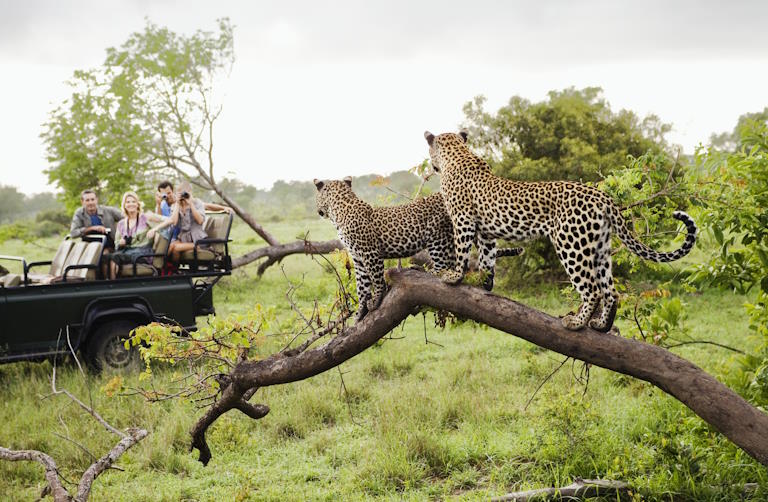
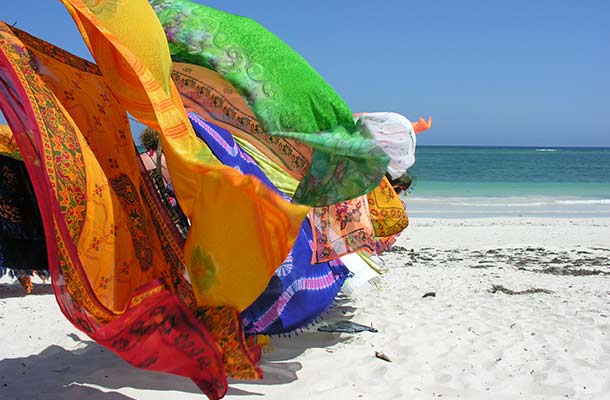
No Comments